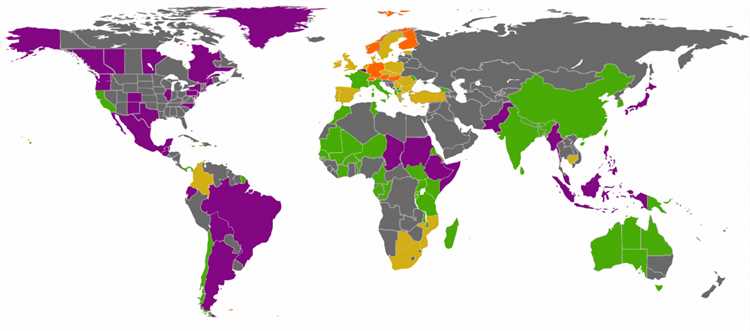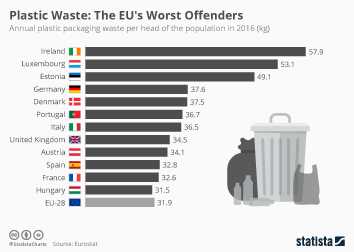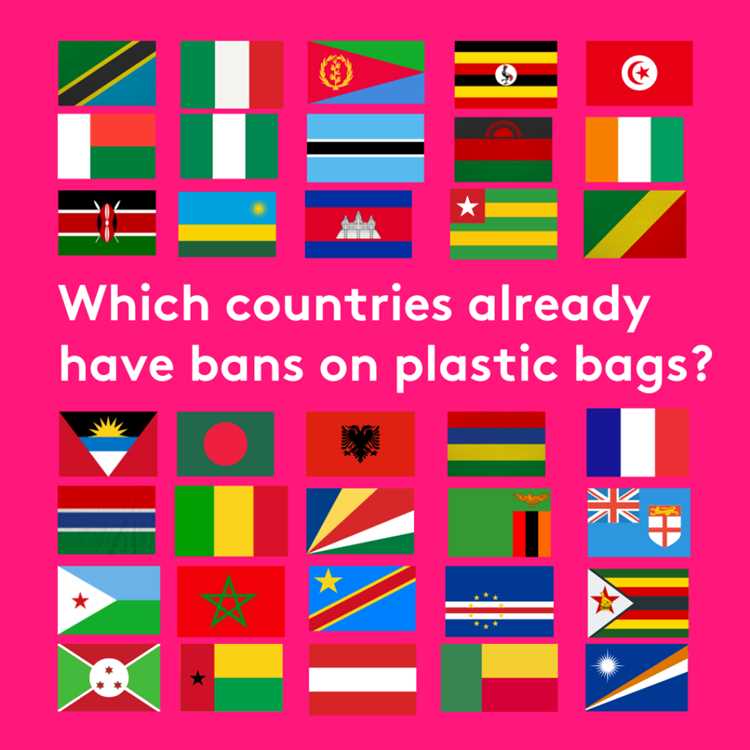
The issue of plastic pollution has become a global concern, with millions of plastic bags ending up in landfills, oceans, and other natural habitats every year. In response to this environmental crisis, several countries and cities around the world have taken proactive measures to ban or restrict the use of plastic bags.
One of the first countries to implement a nationwide ban on plastic bags was Rwanda. In 2008, the Rwandan government introduced strict legislation that prohibited the production, importation, sale, and use of plastic bags. This bold move has not only helped to significantly reduce plastic waste but has also positioned Rwanda as a leader in environmental conservation within the African continent.
Another country that has taken decisive action against plastic bags is Kenya. In 2017, the Kenyan government implemented one of the world’s toughest laws against plastic bags. The ban on plastic bags in Kenya includes heavy penalties for both the production and use of plastic bags, with fines of up to $38,000 or four years imprisonment for offenders. This strict enforcement has led to a significant reduction in plastic bag usage and has improved the overall cleanliness of the country.
In addition to country-wide bans, several cities have also taken it upon themselves to tackle the plastic bag problem. One notable example is San Francisco in the United States. In 2007, the city implemented a ban on plastic bags in large grocery stores and drugstores. This was later expanded to include all retail establishments in 2012. San Francisco’s ban on plastic bags has been successful in reducing waste and encouraging the use of reusable alternatives.
Other cities that have made strides in fighting plastic bag pollution include Seattle, Washington, which became one of the first cities in the United States to ban plastic bags in 2012, and Mumbai, India, which banned the use of plastic bags in 2018. These cities serve as shining examples of how local communities can make a significant impact on reducing plastic waste and creating a cleaner, more sustainable future.
- Government Initiatives to Reduce Plastic Waste
- Plastic Bag Bans and Taxes
- Extended Producer Responsibility
- Environmental Impact of Plastic Bags
- Benefits of Banning Plastic Bags
- Successful Examples of Plastic Bag Bans
- Challenges and Opposition to Plastic Bag Bans
- 1. Economic Impact
- 2. Alternative Packaging
- 3. Behavioural Change
- The Future of Plastic Bag Bans
- International Efforts
- Continued Expansion
- Q&A:
- Which countries have banned plastic bags?
- Why do countries ban plastic bags?
- What are the alternatives to plastic bags?
- What are the penalties for using plastic bags in countries that have banned them?
- Does banning plastic bags really make a difference?
Government Initiatives to Reduce Plastic Waste
Many governments around the world have implemented initiatives to tackle the issue of plastic waste. These initiatives aim to reduce the use of single-use plastic items, promote recycling, and encourage the use of sustainable alternatives.
Plastic Bag Bans and Taxes
One of the most common initiatives is the implementation of plastic bag bans or taxes. This strategy has been adopted by countries such as Australia, Kenya, and Ireland, as well as cities like San Francisco and Seattle. By imposing fees on plastic bags or banning them altogether, these governments aim to discourage their use and promote the use of reusable bags.
Extended Producer Responsibility
Another measure taken by governments is the implementation of extended producer responsibility (EPR) programs. EPR programs shift the responsibility of managing the lifecycle of plastic products from consumers to producers. This means that manufacturers are legally obligated to take responsibility for the disposal or recycling of their products. Many countries, including Canada, Germany, and Japan, have implemented EPR programs to reduce plastic waste.
Under such programs, manufacturers are incentivized to use recyclable materials, design products that are easier to recycle, and invest in recycling infrastructure. This helps reduce plastic waste and promotes a circular economy where products are reused or recycled instead of being disposed of.
Plastic Taxes and Levies
In addition to plastic bag bans and extended producer responsibility programs, some governments have implemented plastic taxes and levies. These taxes are imposed on plastic packaging materials or specific plastic products to discourage their use. The revenue generated from these taxes can be used to fund recycling programs or infrastructure improvements.
For example, in the United Kingdom, a plastic packaging tax will be introduced in April 2022. This tax will apply to plastic packaging that does not contain at least 30% recycled content. The aim of this tax is to encourage the use of recycled materials and reduce plastic waste.
Furthermore, Mexico City has implemented a plastic bag tax, whereby consumers are required to pay for each plastic bag they use. This initiative has led to a significant reduction in plastic bag consumption and has raised awareness about the environmental impact of single-use plastics.
Overall, government initiatives to reduce plastic waste are crucial in addressing the global plastic pollution crisis. By implementing measures such as plastic bag bans, extended producer responsibility programs, and plastic taxes, governments are taking steps towards a more sustainable and plastic-free future.
Environmental Impact of Plastic Bags
Plastic bags have become a major environmental issue due to their negative impact on the planet. They are not biodegradable and take hundreds of years to break down. This means that once plastic bags are thrown away, they will remain in the environment for a very long time, causing damage and pollution.
One of the main environmental concerns associated with plastic bags is their contribution to plastic pollution in bodies of water. Many plastic bags end up in rivers, lakes, and oceans, where they harm marine life and ecosystems. Marine animals such as turtles, dolphins, and whales can mistake plastic bags for food, leading to injury or death. Additionally, plastic bags can entangle and suffocate marine creatures.
Another issue with plastic bags is their impact on landfills. As these bags are not biodegradable, they take up valuable space in landfills and can leach harmful chemicals into the soil. The pollution from plastic bags can also seep into groundwater, posing a threat to local communities and ecosystems.
Plastic bags also have a significant carbon footprint. The production of plastic bags requires the extraction and refinement of fossil fuels, contributing to greenhouse gas emissions and climate change. Furthermore, transporting plastic bags and disposing of them also contributes to carbon emissions.
Plastic bags are also a significant contributor to litter. When not disposed of properly, they can easily be blown away and end up in natural landscapes, parks, and beaches. This not only spoils the beauty of these areas but also poses risks to wildlife and humans.
To reduce the environmental impact of plastic bags, many countries and cities have implemented policies to ban or restrict their use. This includes promoting reusable alternatives such as cloth bags or paper bags. By reducing the demand and usage of plastic bags, we can help protect the environment and create a more sustainable future.
Benefits of Banning Plastic Bags

Banning plastic bags can bring about a multitude of benefits for both the environment and society as a whole. Here are some of the key advantages:
|
1. Reduce plastic pollution: Plastic bags are one of the major contributors to pollution, especially in oceans and waterways. Banning them significantly reduces the amount of plastic waste that ends up in landfills and natural habitats. |
|
2. Protect wildlife: Many animals mistake plastic bags for food, leading to injury or death. By eliminating their use, we can help protect wildlife and prevent harm to marine life, birds, and other creatures that often fall victim to plastic bag ingestion. |
|
3. Promote sustainability: Banning plastic bags encourages the use of reusable alternatives such as cloth or paper bags. These options are more sustainable, as they can be used multiple times and are biodegradable, reducing the overall environmental impact. |
|
4. Save energy and resources: The production of plastic bags requires significant amounts of energy and resources, including petroleum and natural gas. By banning plastic bags, we can decrease the demand for these non-renewable resources and reduce carbon emissions associated with their production and disposal. |
|
5. Improve sanitation: Plastic bags often end up as litter in public spaces, contributing to a dirty and unhygienic environment. Banning them promotes cleaner streets, parks, and beaches, creating a more pleasant and healthier living environment for everyone. |
In conclusion, the benefits of banning plastic bags are far-reaching and can have a significant positive impact on our environment and society. By taking this small step, we can contribute to a cleaner, greener, and more sustainable future.
Successful Examples of Plastic Bag Bans
1. Rwanda: Rwanda is considered to be one of the most successful examples of a plastic bag ban. Since 2008, the country has completely prohibited the use, importation, and production of plastic bags. The ban has led to a significant reduction in plastic waste and has helped protect the environment.
2. Kenya: Kenya implemented a plastic bag ban in 2017 and has since seen positive results. The ban has reduced plastic bag usage by up to 80% and has contributed to a cleaner environment. The government has also enforced strict penalties, including fines and imprisonment, for those who violate the ban.
3. France: France implemented a ban on single-use plastic bags in 2016. The ban has successfully reduced plastic bag consumption and has encouraged the use of reusable bags. France has also introduced a tax on all single-use plastic bags that are still available to discourage their use.
4. Italy: Italy implemented a ban on non-biodegradable plastic bags in 2011. The ban has led to a significant decrease in plastic bag consumption and has encouraged the use of alternatives such as reusable bags. The government has also introduced initiatives to promote the use of biodegradable bags instead of non-biodegradable ones.
5. Taiwan: Taiwan introduced a ban on single-use plastic bags in 2002. The ban has been successful in reducing plastic bag consumption and has led to increased public awareness about the negative impacts of plastic waste. The government has also implemented recycling programs and provided incentives for businesses to use eco-friendly packaging.
These are just a few successful examples of countries and cities that have implemented plastic bag bans. Their efforts have shown that with the right regulations and public support, it is possible to reduce plastic waste and protect the environment.
Challenges and Opposition to Plastic Bag Bans
The implementation of plastic bag bans has faced several challenges and has been met with some opposition. While the benefits of reducing plastic waste and environmental pollution may seem clear, there are various issues that need to be addressed.
1. Economic Impact

One of the main challenges of implementing plastic bag bans is the potential economic impact on businesses and consumers. Plastic bags are inexpensive and provide a convenient and cost-effective solution for carrying goods. Banning plastic bags could lead to increased costs for businesses, as they would need to find alternatives to provide to customers. This could result in higher prices for products or services, impacting consumers and potentially leading to resistance towards the bans.
2. Alternative Packaging
Finding suitable alternatives to plastic bags is another challenge. While reusable bags and paper bags are often suggested as alternatives, they also have their drawbacks. Reusable bags require consumers to remember to bring them when shopping and to keep them clean, which may be inconvenient for some. Paper bags, on the other hand, have their own environmental impacts, as the production process requires more energy and resources compared to plastic bags.
Additionally, alternative packaging options may not be readily available or affordable, especially in less developed regions or for low-income individuals. This could create disparities and inequities in access to essential goods and services.
The use of plastic bags remains deeply entrenched in many industries and consumer habits, leading to opposition towards bans. Some argue that the bans infringe on their freedom of choice and inconvenience their lives. Others argue that the focus should be on improving recycling and waste management systems rather than outright bans.
3. Behavioural Change
Changing consumer behavior is another challenge in implementing plastic bag bans. Despite awareness campaigns and education efforts, some individuals may still resist using alternative options. Overcoming the habit of relying on plastic bags and encouraging sustainable practices require time and consistent efforts.
However, it is important to note that several cities and countries have successfully implemented plastic bag bans, demonstrating that the challenges can be overcome through effective communication, stakeholder engagement, and providing viable alternatives.
The Future of Plastic Bag Bans
The issue of plastic bags and their impact on the environment has gained significant attention in recent years. As more countries and cities around the world implement bans on single-use plastic bags, the future of plastic bag bans looks promising.
One of the main reasons for banning plastic bags is their negative impact on marine life and ecosystems. Plastic bags are often mistaken for food by marine animals, resulting in suffocation and death. The bans are aimed at reducing the amount of plastic waste that ends up in oceans and landfills, thereby protecting wildlife and preserving the natural environment.
International Efforts
Several international organizations have recognized the need to address the plastic bag issue. For example, the United Nations Environment Programme (UNEP) launched the Clean Seas campaign, which aims to eliminate major sources of marine litter by encouraging countries to take action against plastic bags and other forms of plastic waste.
In addition to UNEP, other organizations such as Greenpeace and the World Wildlife Fund (WWF) have also been actively campaigning for plastic bag bans. Through their advocacy efforts, these organizations have been successful in raising awareness about the environmental impact of plastic bags and mobilizing public support for bans.
Continued Expansion
The trend of banning plastic bags shows no signs of slowing down. Many countries and cities that have not yet implemented plastic bag bans are considering doing so in the near future. This includes countries like the United States, where individual states and cities are taking the lead in enacting bans or imposing fees on plastic bags.
Furthermore, technological advancements and innovations in alternative packaging options are making it easier for businesses and consumers to transition away from plastic bags. Reusable bags made from biodegradable or compostable materials, as well as paper bags, are becoming more readily available and affordable, reducing the reliance on single-use plastic bags.
While there may be some challenges and resistance to plastic bag bans, the overall momentum towards a plastic bag-free future is promising. With continued efforts from governments, organizations, and individuals, we can create a world where plastic bags are a thing of the past and our environment is better protected.
Q&A:
Which countries have banned plastic bags?
Several countries have banned plastic bags, including Kenya, Rwanda, Bangladesh, Italy, China, and Australia.
Why do countries ban plastic bags?
Countries ban plastic bags in order to reduce plastic pollution and promote environmental sustainability. Plastic bags are non-biodegradable and can take hundreds of years to decompose, causing harm to wildlife and ecosystems.
What are the alternatives to plastic bags?
There are several alternatives to plastic bags, such as reusable cloth bags, paper bags, and biodegradable bags made from cornstarch or other plant-based materials. These alternatives are more environmentally friendly and can be reused or decompose more quickly.
What are the penalties for using plastic bags in countries that have banned them?
The penalties for using plastic bags in countries that have banned them vary, but often include fines or even imprisonment. The severity of the penalties is meant to deter people from using plastic bags and encourage them to switch to more sustainable options.
Does banning plastic bags really make a difference?
Yes, banning plastic bags can make a significant difference in reducing plastic waste and pollution. Studies have shown that countries and cities that have banned plastic bags have seen a decrease in their usage and an improvement in their environment. It also raises awareness about the negative impact of plastic on the planet and encourages people to adopt more sustainable habits.